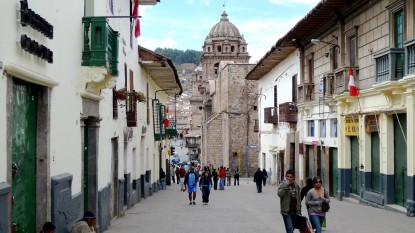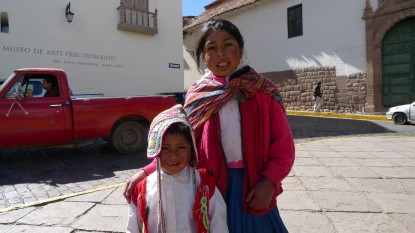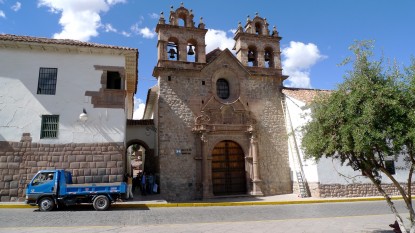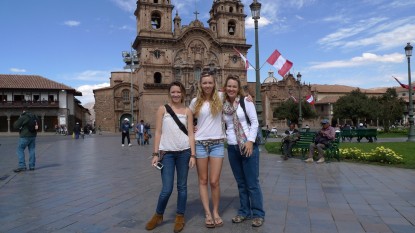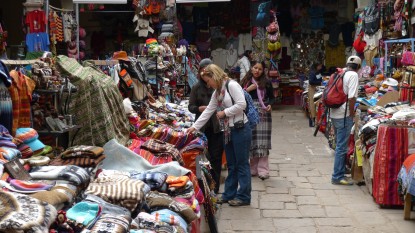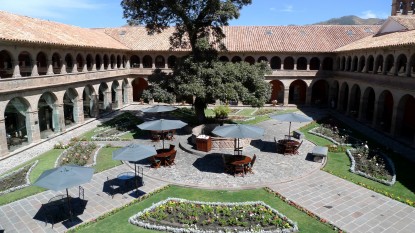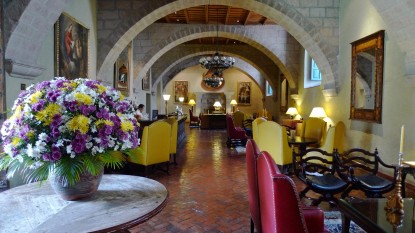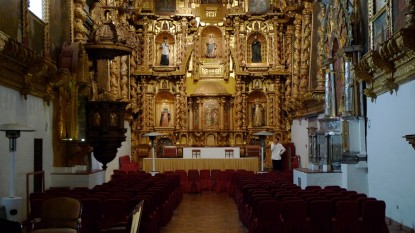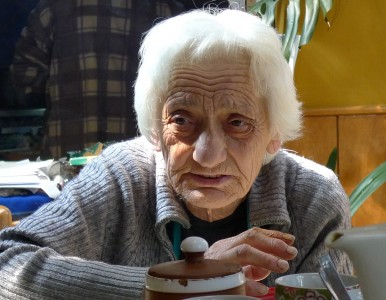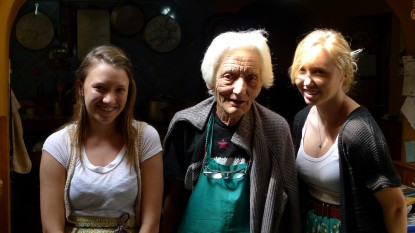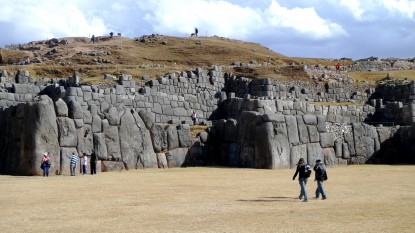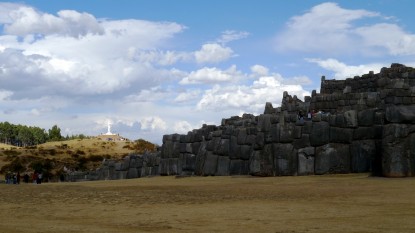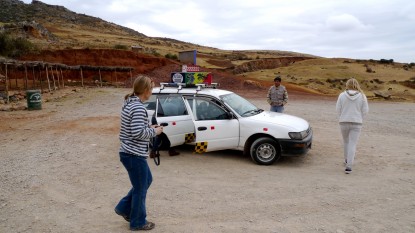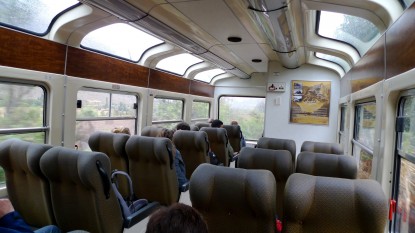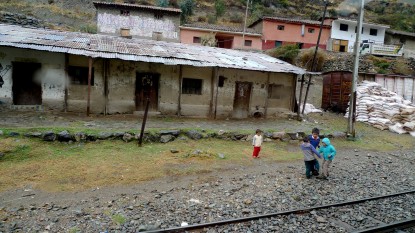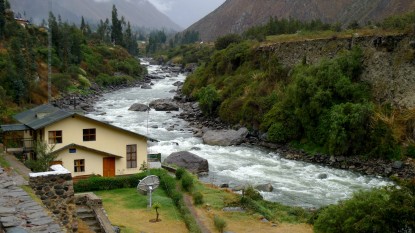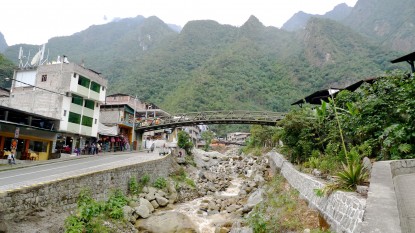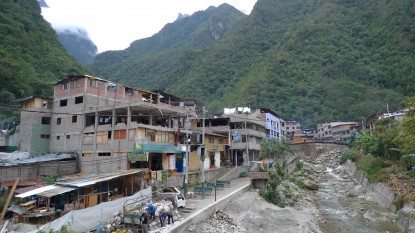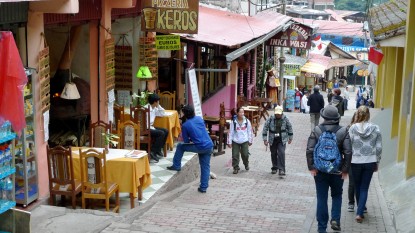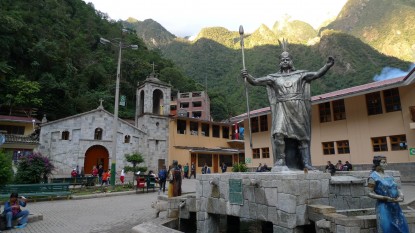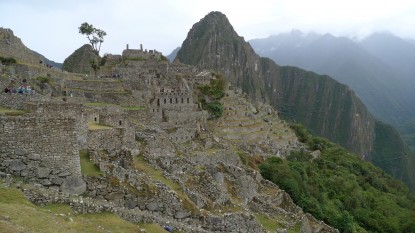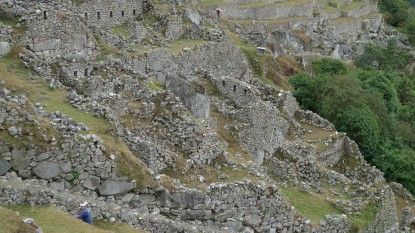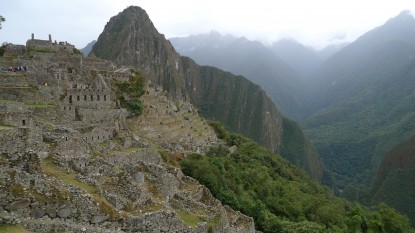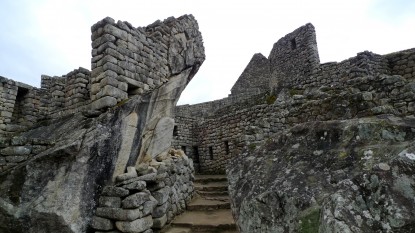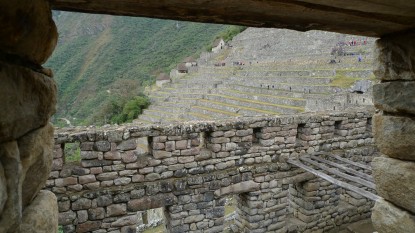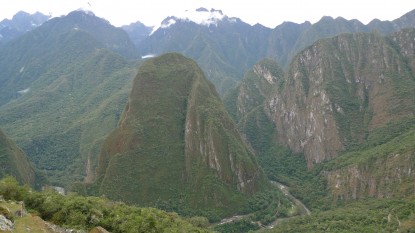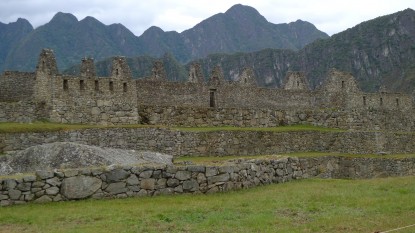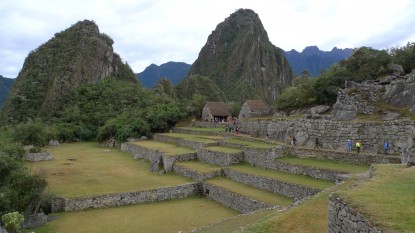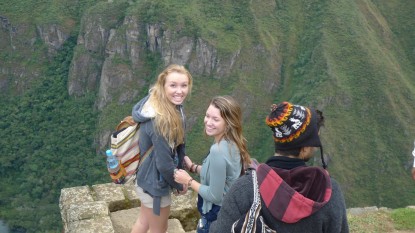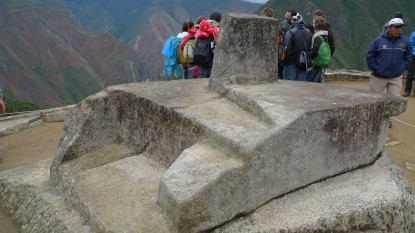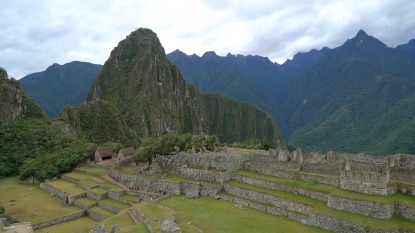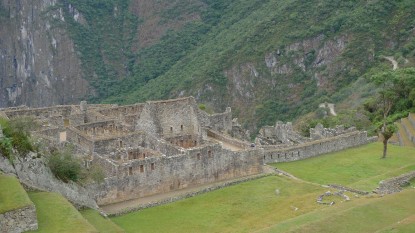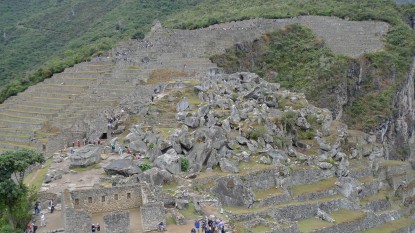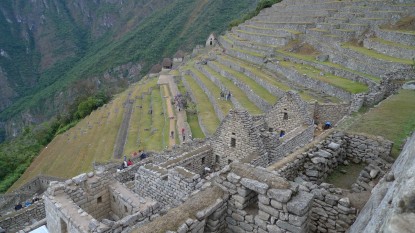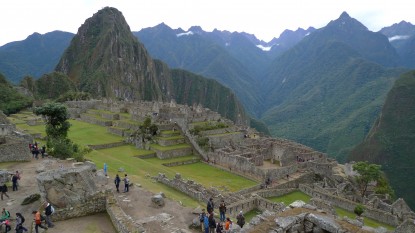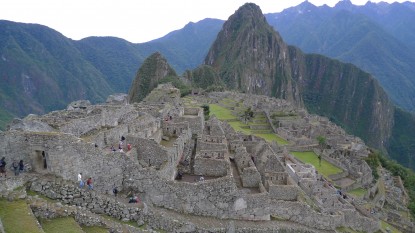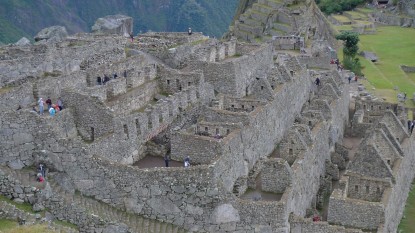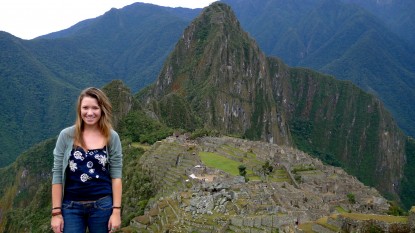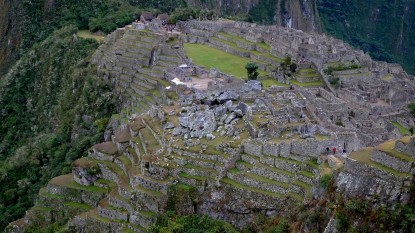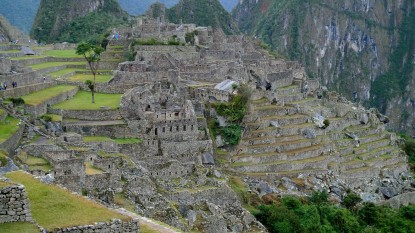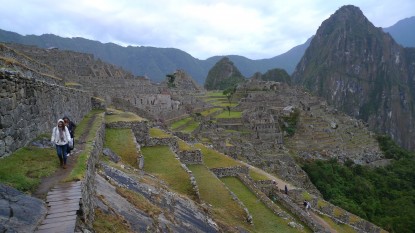I joined my sister, my oldest niece, and a cousin’s daughter in L.A. and together we flew to Lima (eight hour flight) and then on to Cusco (one hour flight).
Cusco
Cusco sits at an elevation of about 11,000 feet. Our plan was to take it easy the first day or so to adjust to the altitude. This worked out well.
Formerly the capital of the Inca Empire, Cusco is now ruled by tourists. It’s still got a lot of charm though.
For a Peruvian sol (about three soles to the US dollar) you can take a photo like this:
Here’s a view just outside our hotel:
My sister and the girls in the Plaza de Armas of Cusco:
Always with the shopping:
Monasterio
In Cusco we stayed several nights at the Monasterio, a very pleasant place to hang out and adjust to the altitude of Cusco. You can even get rooms where they pump in oxygen.
It was originally a monastery that was built in 1595. That’s a 300 year old cedar tree in the central courtyard:
The lobby is a nice place to drink coca tea (which supposedly helps with the altitude):
The Chapel:
CAITH
One of the main reasons my sister wanted to go to Peru was to visit and film CAITH to help raise awareness.
This is the director, formerly a math professor in Italy:
Sacsayhuamán
Just outside Cusco is Sacsayhuamán (sounds like “sexy woman”), a huge Incan site.
My sister is in the middle:
The statue on the left is visible from the Monasterio:
To Machu Picchu via Ollayantantambo
We took a taxi to Ollayantantambo…
…where we caught a train…
View from the train:
Another view from the train:
Aguas Calientes (Machu Picchu Village)
The train took us to Machu Picchu Village where we spent the night.
There is also a Plaza de Armas in Machu Picchu Village:
Machu Picchu
After a week of traveling it was finally Machu Pichhu day.
Everyone recommended seeing the “Lost City of the Incas” at sunrise, so we got up at 4:15 am, had a quick breakfast, and got in line for one of the first shuttle buses. Alas it was overcast that morning. However, we managed to avoid heavy rains by going early.
I took a lot of photos:
This is the Intihuatana stone, arranged to point directly at the sun during the winter solstice:
